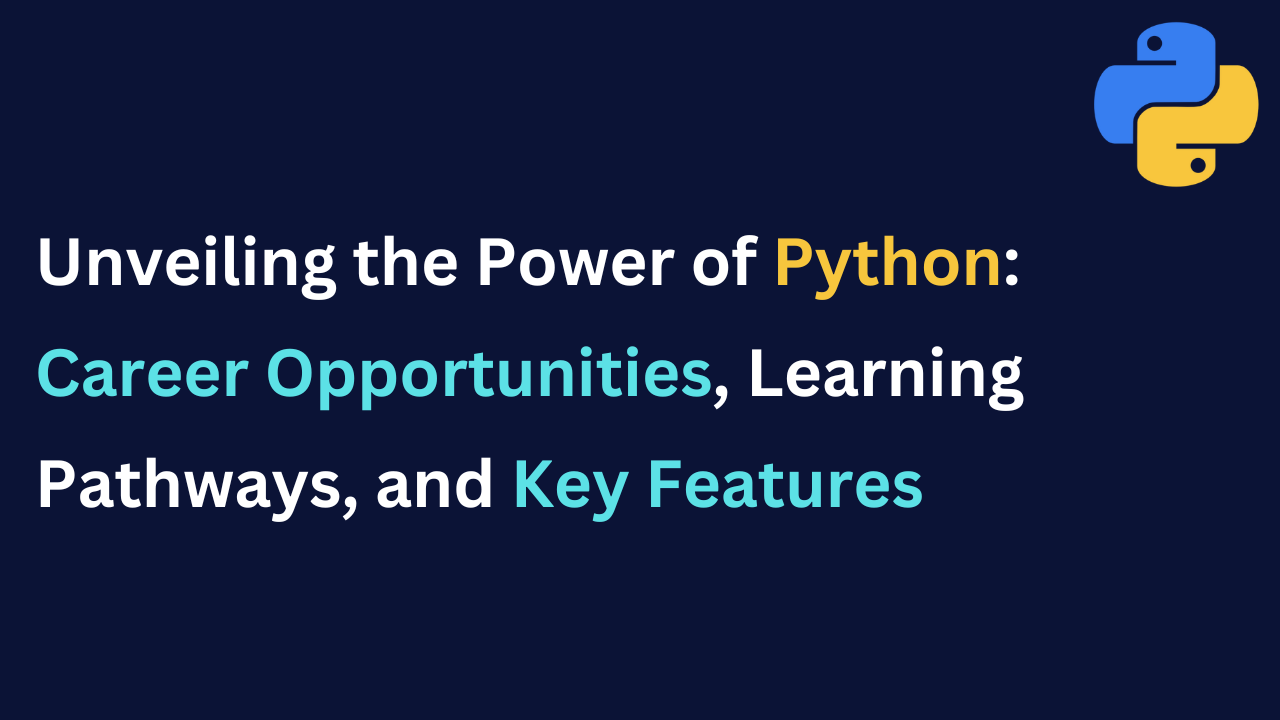
Unveiling the Power of Python: Career Opportunities, Learning Pathways, and Key Features
Pradeep Misra
Innovation | Entrepreneurship | Technical/Product Leadership | AI/ML/Blockchain | Finance, Wealth & Investment | Web & Mobile | ReactJS | Python | 21K+ | Co-founder | Ex- Barclays, Accenture, HP/EDS, TietoEVRY
Python, a versatile and powerful programming language, has gained widespread popularity across various industries and domains, offering lucrative career opportunities for professionals worldwide. From web development and data science to machine learning and generative AI, Python is the go-to choice for developers, analysts, and researchers alike. In this comprehensive guide, we explore what Python is, delve into the vast array of career opportunities it presents, outline the steps to learn Python effectively, and provide insights into its key features with illustrative code examples.
1. Introduction to Python:
Python is a high-level, interpreted programming language known for its simplicity, readability, and versatility. Created by Guido van Rossum in the late 1980s, Python has since evolved into a powerhouse in the world of software development, with a robust ecosystem of libraries, frameworks, and tools catering to diverse use cases and applications.
2. Career Opportunities in Python:
Python offers a multitude of career opportunities across various domains, including:
- Web Development: Frameworks like Django and Flask facilitate rapid development of web applications, making Python a popular choice for web developers.
- Data Science: With libraries such as NumPy, Pandas, and Matplotlib, Python is widely used for data analysis, visualization, and machine learning tasks.
- Machine Learning and AI: Python's simplicity and extensive libraries like TensorFlow, PyTorch, and scikit-learn make it the preferred language for building and deploying machine learning models.
- Generative AI: Python plays a crucial role in generative AI, enabling developers to create AI systems that can autonomously generate creative outputs such as images, music, and text.
3. Learning Python: Steps to Mastery:
To learn Python effectively, follow these steps:
- Get familiar with basic concepts: Start with fundamental concepts like variables, data types, loops, and functions.
- Practice coding: Reinforce your learning by writing code regularly, solving problems, and working on projects.
- Explore libraries and frameworks: Dive into popular libraries and frameworks relevant to your interests, such as Django for web development or TensorFlow for machine learning.
- Collaborate and engage with the community: Join online communities, forums, and coding communities to learn from others, seek help, and collaborate on projects.
- Continuously learn and adapt: Python is a dynamic language with new features and updates regularly. Stay updated with the latest developments and trends in Python and related technologies.
4. Key Features of Python with Code Examples:
Let's explore some key features of Python along with illustrative code examples:
a. Simple and Readable Syntax:
```python
# Python code example demonstrating simple syntax
def greet(name):
print("Hello, " + name + "!")
greet("World")
```
b. Extensive Standard Library:
```python
领英推荐
# Python code example demonstrating the use of the 'random' module from the standard library
import random
random_number = random.randint(1, 10)
print("Random number:", random_number)
```
c. Dynamic Typing and Automatic Memory Management:
```python
# Python code example demonstrating dynamic typing
x = 10
print("Type of x:", type(x))
x = "Hello, Python!"
print("Type of x:", type(x))
```
d. Strong Community Support and Ecosystem:
```python
# Python code example demonstrating the use of the 'requests' library for making HTTP requests
import requests
response = requests.get("https://api.github.com")
print("Status code:", response.status_code)
```
e. Versatility and Portability:
```python
# Python code example demonstrating platform-independent code
import os
current_directory = os.getcwd()
print("Current directory:", current_directory)
```
Conclusion:
Python stands out as a versatile and powerful programming language with a plethora of career opportunities across various domains, including web development, data science, machine learning, and generative AI. By following a structured learning path, mastering Python's key features, and engaging with the vibrant community, aspiring developers can unlock the full potential of Python and embark on a rewarding career journey in the world of software development and technology innovation.